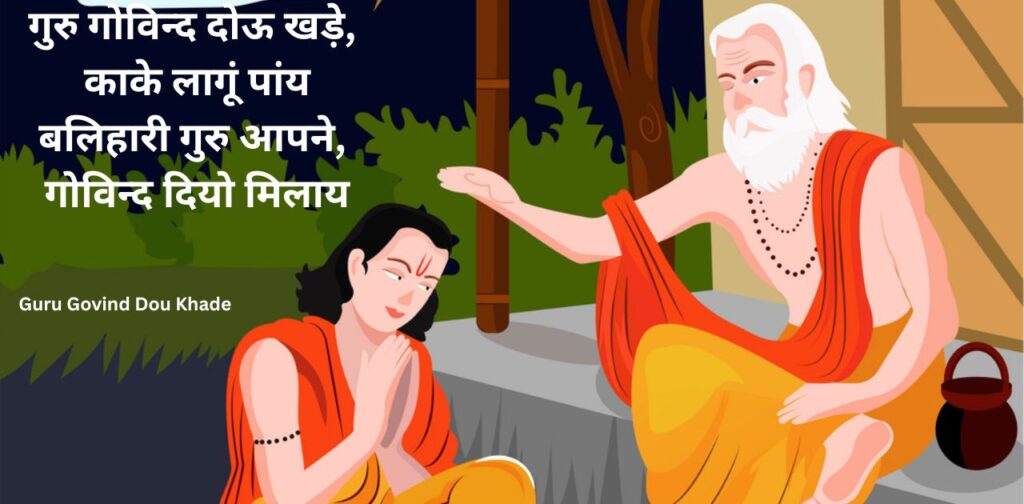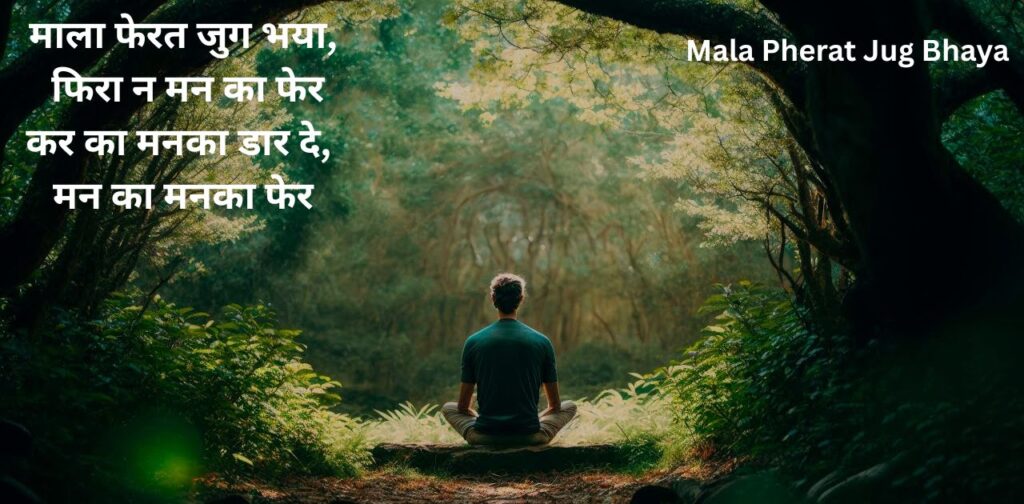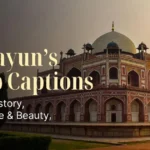Kabir Das, the 15th-century mystic poet, revolutionized Indian literature with his profound Hindi poems that challenged societal norms and religious orthodoxy. His famous dohas continue to inspire millions across the globe, transcending barriers of caste, creed, and time. These 22+ Kabir Das poems in Hindi represent the essence of spiritual wisdom, offering timeless guidance for modern seekers navigating life’s complexities.
Bura Jo Dekhan Main Chala – The Mirror of Self-Reflection
बुरा जो देखन मैं चला,
बुरा न मिलिया कोय
जो दिल खोजा आपना,
मुझसे बुरा न कोय
Bura jo dekhan main chala,
bura na miliya koy
Jo dil khoja aapna,
mujhse bura na koy
This profound Kabir poem delivers a revolutionary perspective on human judgment and self-awareness. When Kabir ventured forth to find fault in others, he discovered an astonishing truth – no one appeared more flawed than himself when he honestly examined his own heart. The doha emphasizes introspection over criticism, suggesting that genuine spiritual growth begins with acknowledging our own imperfections rather than highlighting others’ shortcomings. This timeless wisdom challenges our natural tendency to judge others while remaining blind to our own faults.
Pothi Padh Padh Jag Mua – Beyond Bookish Knowledge
पोथी पढ़ि पढ़ि जग मुआ,
पंडित भया न कोय
ढाई आखर प्रेम का,
पढ़े सो पंडित होय
Pothi padh padh jag mua,
pandit bhaya na koy
Dhai aakhar prem ka,
padhe so pandit hoy
Kabir’s revolutionary stance against mere bookish learning resonates powerfully in this famous Hindi poem. He observes that countless people have exhausted themselves reading religious texts without achieving true wisdom or enlightenment. The mystic poet suggests that understanding just two and a half letters of love – “प्रे-म” (prem) – makes one truly learned.
This Kabir Das doha emphasizes experiential knowledge over theoretical understanding, advocating that genuine wisdom comes from living love rather than accumulating information.
Dukh Mein Sumiran Sab Kare – Divine Remembrance in Joy and Sorrow
दुःख में सुमिरन सब करे,
सुख में करे न कोय
जो सुख में सुमिरन करे,
तो दुःख काहे को होय
Dukh mein sumiran sab kare,
sukh mein kare na koy
Jo sukh mein sumiran kare,
to dukh kahe ko hoy
This insightful Kabir poem exposes human nature’s tendency toward selective spirituality. Kabir observes that everyone remembers the divine during difficult times, yet few maintain this connection during prosperous moments. The profound wisdom lies in his suggestion that consistent remembrance of the divine during good times naturally prevents the occurrence of suffering.
This famous Hindi doha advocates for developing a continuous spiritual practice rather than emergency devotion, highlighting how gratitude and mindfulness during abundance create lasting peace.
Kabira Khada Bazaar Mein – Standing Fearlessly in Truth
कबीरा खड़ा बाज़ार में,
मांगे सबकी खैर
ना काहू से दोस्ती,
ना काहू से बैर
Kabira khada bazaar mein,
mange sabki khair
Na kahu se dosti,
na kahu se bair
Kabir’s bold declaration of neutrality and universal goodwill demonstrates his revolutionary approach to social relationships. Standing in the marketplace – the symbol of worldly interactions – he wishes well for everyone while maintaining equal distance from all. This powerful Hindi poem advocates for transcending personal attachments and animosities, suggesting that true spiritual freedom comes from rising above partisan loyalties.
Kabir’s stance reflects the highest form of compassion – loving all without getting entangled in exclusive relationships or hatred.
Guru Govind Dou Khade – The Ultimate Choice Between Teacher and God

गुरु गोविन्द दोऊ खड़े,
काके लागूं पांय
बलिहारी गुरु आपने,
गोविन्द दियो मिलाय
Guru govind dou khade,
kake laagoon paay
Balihari guru aapne,
govind diyo milaay
This celebrated Kabir doha presents a beautiful resolution to an apparent spiritual dilemma. When both the guru and God stand before a devotee, whom should one bow to first? Kabir’s elegant solution honors the guru because it was through the teacher’s guidance that the student discovered the divine.
This profound Hindi poem emphasizes the sacred relationship between teacher and student in spiritual development, acknowledging that authentic gurus serve as bridges to divine realization rather than obstacles to it.
Jaise Til Mein Tel Hai – The Hidden Divine Within
जैसे तिल में तेल है,
ज्यों चकमक में आग
तेरा साईं तुझमें बसे,
जाग सके तो जाग
Jaise til mein tel hai,
jyon chakmak mein aag
Tera saain tujh mein base,
jaag sake to jaag
Through vivid analogies, this Kabir poem illuminates the omnipresent nature of divinity. Just as oil exists within sesame seeds and fire lies dormant in flint, the divine resides within every human being. The mystic poet uses these powerful metaphors to explain that God isn’t an external entity to be found elsewhere, but rather an inner reality waiting to be awakened.
His urgent call “jaag sake to jaag” (awaken if you can) emphasizes that spiritual realization requires conscious effort and awareness to discover this ever-present divine essence.
More Posts:26+ Good Poems in Hindi on Life
Chalti Chakki Dekh Kar – Life’s Grinding Mill Wisdom
चलती चक्की देख कर,
दिया कबीरा रोय
दो पाटन के बीच में,
साबुत बचा न कोय
Chalti chakki dekh kar,
diya Kabira roy
Do paatan ke beech mein,
saabut bacha na koy
Witnessing a flour mill’s operation moved Kabir to tears, inspiring this deeply philosophical poem. The grinding stones represent life’s challenges and the inevitable pressures that shape human existence. Between these forces, nothing remains whole or unchanged.
This metaphorical Kabir doha reflects on life’s transformative nature – how experiences, both pleasant and painful, continuously mold and refine us. The imagery suggests that spiritual growth often requires being broken down and reconstructed, much like grain becoming flour through the grinding process.
Aisee Vani Boliye – The Art of Compassionate Speech
ऐसी वाणी बोलिये,
मन का आप खोय
औरन को शीतल करे,
आपहुं शीतल होय
Aisee vaani boliye,
man ka aapa khoy
Auran ko sheetal kare,
aapahu sheetal hoy
This transformative Kabir poem provides a blueprint for conscious communication. Kabir advocates speaking in such a manner that ego dissolves and words become sources of comfort rather than conflict. The beautiful imagery of coolness represents peace and healing – speech that soothes others naturally brings tranquility to the speaker as well.
This practical wisdom emphasizes the reciprocal nature of compassionate communication, where kind words create a cycle of positivity that benefits both speaker and listener.
Kabira Teri Jhompri – Contentment in Simplicity
कबीरा तेरी झोंपड़ी,
गलकटियन के पास
करेंगे सो भरेंगे,
तू क्यों भयो उदास
Kabira teri jhompri,
galakatiyan ke paas
Karenge so bharenge,
tu kyon bhayo udaas
Kabir’s humble acceptance of his simple dwelling near the butchers’ quarter demonstrates profound spiritual contentment. Despite living in an area considered undesirable by social standards, he maintains unwavering faith that divine providence will provide for his needs.
This inspiring Hindi poem challenges materialistic values and social prejudices, suggesting that true happiness stems from inner peace rather than external circumstances. Kabir’s philosophical approach to poverty and social ostracism offers a powerful lesson in finding joy regardless of worldly conditions.
Mala Pherat Jug Bhaya – Beyond Ritualistic Practices

माला फेरत जुग भया,
फिरा न मन का फेर
कर का मनका डार दे,
मन का मनका फेर
Mala pherat jug bhaya,
phira na man ka pher
Kar ka manka daar de,
man ka manka pher
This critical examination of religious practices reveals Kabir’s revolutionary approach to spirituality. He observes that people have been turning prayer beads for ages without achieving the inner transformation that matters most. The clever wordplay between physical beads (manka) and mental contemplation emphasizes that external rituals without internal change are meaningless.
Kabir suggests abandoning mechanical practices in favor of genuine mental purification – a message that resonates strongly with contemporary spiritual seekers questioning ritualistic religion.
Jab Main Tha Tab Hari Nahin – The Paradox of Ego and Divinity
जब मैं था तब हरि नहीं,
अब हरि हैं मैं नाहि
प्रेम गली अति सांकरी,
ता में दो न समाहि
Jab main tha tab Hari nahin,
ab Hari hain main naahi
Prem gali ati saankari,
ta mein do na samaahi
Kabir’s mystical insight into the nature of ego and divine realization forms the heart of this profound doha. The paradoxical statement reveals that divine experience and ego consciousness cannot coexist – when the sense of “I” dominates, God seems absent, but when divine awareness awakens, the ego dissolves. The beautiful metaphor of love being a narrow lane emphasizes that spiritual intimacy requires complete surrender of personal identity.
This advanced spiritual teaching addresses the ultimate goal of mystical experience – the dissolution of duality.
Nindak Niyare Rakhiye – Keeping Critics Close
निंदक नियरे राखिए,
आंगन कुटी छवाय
बिन पानी, साबुन बिना,
निर्मल करे सुभाय
Nindak niyare rakhiye,
aangan kuti chhawaay
Bin paani, saabun bina,
nirmal kare subhaay
This counterintuitive wisdom demonstrates Kabir’s revolutionary perspective on criticism and personal growth. Rather than avoiding those who point out faults, he suggests keeping critics close and providing them comfort. The striking metaphor compares criticism to a cleansing process that purifies character without requiring water or soap.
This practical spiritual advice recognizes that honest feedback, even when delivered harshly, serves as a mirror for self-improvement. Kabir’s approach transforms potential enemies into unwitting spiritual teachers.
More Posts:30+ Hindi Poems on Love by Famous Poets
Kaal Kare So Aaj Kar – The Urgency of Spiritual Action
काल करे सो आज कर,
आज करे सो अब
पल में परलय होएगी,
बहुरि करेगा कब
Kaal kare so aaj kar,
aaj kare so ab
Pal mein parlay hoegi,
bahuri karega kab
Kabir’s urgent call for immediate spiritual action reflects his deep understanding of life’s impermanent nature. This powerful Hindi poem emphasizes that postponing spiritual practice or righteous deeds is a dangerous gamble with destiny.
The dramatic imagery of destruction occurring in an instant serves as a wake-up call to those who assume unlimited time for spiritual development. This timeless message resonates particularly strongly in modern times when people often defer important life decisions, thinking they have endless opportunities for course correction.
Maya Mari Na Man Mara – Conquering Illusion and Mind
माया मरी न मन मरा,
मर-मर गए शरीर
आशा, तृष्णा न मरी,
कह गए दास कबीर
Maya mari na man mara,
mar-mar gaye shareer
Aasha, trishna na mari,
kah gaye daas Kabeer
This profound observation on human conditioning reveals Kabir’s deep psychological insight. Despite the body’s mortality, the fundamental forces that create suffering – maya (illusion), mind, desires, and cravings – remain unconquered in most people’s lives. The repetitive structure “mar-mar” (dying repeatedly) emphasizes how physical death doesn’t necessarily bring spiritual liberation.
This challenging Kabir doha suggests that true death involves the dissolution of mental patterns and desires that bind consciousness, rather than mere bodily demise.
Sukhiya Sab Sansar Hai – Universal Suffering and Compassion

सुखिया सब संसार है,
खावै और सोवे
दुखिया दास कबीर है,
जागे और रोवे
Sukhiya sab sansaar hai,
khaavai aur sove
Dukhiya daas Kabeer hai,
jaage aur rove
Kabir’s compassionate perspective on worldly suffering reveals his empathetic nature and spiritual sensitivity. While others appear content eating and sleeping in ignorance, Kabir experiences the deeper anguish of witnessing humanity’s spiritual slumber.
This poignant Hindi poem illustrates the burden of awareness – how spiritual awakening often brings initial sorrow as one perceives the widespread unconsciousness around them. The contrast between surface happiness and conscious suffering highlights the price of enlightenment and the responsibility that comes with spiritual insight.
Kabir Man Nirmal Bhaya – The Purified Heart’s Liberation
कबीर मन निर्मल भया,
जैसे गंगा नीर
पीछे-पीछे हरि फिरे,
कहत कबीर-कबीर
Kabir man nirmal bhaya,
jaise Ganga neer
Peeche-peeche Hari phire,
kahat Kabeer-Kabeer
This celebratory doha captures the ultimate spiritual achievement – complete purification of consciousness. Kabir compares his cleansed mind to the sacred Ganges water, symbolizing absolute purity and spiritual clarity. The beautiful imagery of God following behind and calling his name represents the divine recognition that comes with genuine spiritual attainment.
This triumphant Kabir poem serves as both inspiration and proof that complete transformation is possible through dedicated spiritual practice and surrender.
Dhire Dhire Re Mana – Patience in Spiritual Evolution
धीरे-धीरे रे मना,
धीरे सब कुछ होय
माली सींचे सौ घड़ा,
ऋतु आए फल होय
Dhire-dhire re mana,
dhire sab kuch hoy
Maali seeche sau ghada,
ritu aaye phal hoy
Kabir’s gentle wisdom about spiritual patience offers comfort to eager seekers who expect immediate results. The gardening metaphor beautifully illustrates how spiritual growth follows natural laws – despite a gardener’s diligent watering, fruit appears only in its proper season.
This soothing Hindi poem reminds practitioners that genuine transformation requires time, consistent effort, and surrender to divine timing. The repetitive “dhire-dhire” (slowly-slowly) creates a meditative rhythm that embodies the very patience it advocates.
Sai Itna Dijiye – The Prayer for Enough
साईं इतना दीजिये,
जा में कुटुम्ब समाय
मैं भी भूखा न रहूं,
साधु न भूखा जाय
Saaiin itna deejiye,
ja mein kutumb samaay
Main bhi bhookha na rahun,
saadhu na bhookha jaay
This humble prayer exemplifies Kabir’s balanced approach to material needs and spiritual generosity. Rather than seeking wealth or luxury, he asks for just enough to sustain his family while ensuring he can serve visiting holy people.
This practical spirituality demonstrates that genuine devotion doesn’t require poverty but rather conscious moderation and compassionate sharing. The prayer reflects Kabir’s understanding that true abundance lies in having enough to meet needs while maintaining the capacity for hospitality and service to others.
More Posts:22+ Beautiful Hindi Poems in English About Life
Paahan Puje Hari Mile – Beyond Stone Worship
पाहन पूजे हरि मिले,
तो मैं पूजूं पहाड़
ताते ये चाकी भली,
पीस खाय संसार
Paahan puje Hari mile,
to main poojun pahaad
Taate ye chaaki bhali,
pees khaay sansaar
Kabir’s satirical critique of stone worship showcases his rational approach to spirituality. If God could be found by worshipping stones, he humorously suggests he would worship entire mountains for greater results. The clever comparison with grinding stones (chakki) that serve humanity by producing flour demonstrates his practical philosophy – objects that serve others are more worthy of reverence than lifeless idols.
This witty Kabir poem challenges ritualistic practices while advocating for service-oriented spirituality that benefits humanity.
Kabira Garv Na Kijiye – Humility in Prosperity

कबीरा गर्व न कीजिये,
चाम लपेटी हाड़
हयवान से भी गया है,
जे बावन गज काड़
Kabira garv na keejiye,
chaam lapeti haad
Hayavaan se bhi gaya hai,
je baavan gaj kaad
This sobering reminder about human mortality effectively deflates pride and arrogance. Kabir points out that despite our physical grandeur – skin wrapped around bones – we remain essentially similar to animals, and even mighty beings measuring fifty-two yards have perished. The stark imagery serves as a reality check against ego inflation, reminding readers that physical existence is temporary regardless of size, status, or power.
This humbling perspective encourages focusing on spiritual development rather than external achievements or appearances.
Jheeni Jheeni Bini Chadariya – The Delicate Fabric of Life
झीनी झीनी बीनी चदरिया,
काहे के ताना काहे की भरनी
कौन तार से बीनी चदरिया
इन्द्रधनुष रंगे चदरिया
Jheeni jheeni beeni chadariya,
kahe ke taana kahe ki bharni
Kaun taar se beeni chadariya
Indradhanush range chadariya
This mystical weaving metaphor represents one of Kabir’s most sophisticated spiritual teachings. The delicate sheet symbolizes the human body or life itself, woven with threads of divine consciousness and colored with the rainbow hues of experience. The repeated questioning about the warp, weft, and threads reflects deep philosophical inquiry into the nature of existence and creation.
This complex Kabir composition invites contemplation on how cosmic forces create and sustain individual life, making it both precious and fragile.
Kal Kare So Aaj Kar – Death’s Inevitable Arrival
कल करे सो आज कर,
आज करे सो अब
पल में परलय होएगी,
बहुरि करेगा कब
Kal kare so aaj kar,
aaj kare so ab
Pal mein parlay hoegi,
bahuri karega kab
Kabir’s second variation on this theme intensifies the urgency of immediate action in spiritual and righteous pursuits. The escalating timeline – from tomorrow to today to right now – creates mounting pressure against procrastination. The apocalyptic imagery of instant destruction serves as a powerful motivator for immediate transformation rather than gradual improvement.
This repeated emphasis in Kabir’s work demonstrates his deep concern for humanity’s tendency to postpone important spiritual decisions until circumstances force action.
Kabir Kaya Pal Bhar Ki – The Fragility of Human Existence
कबीर काया पल भर की,
मोती बिखरे जाए
जो कुछ करना है करो,
अब के अब में आए
Kabir kaaya pal bhar ki,
moti bikhre jaaye
Jo kuch karna hai karo,
ab ke ab mein aaye
The delicate imagery of pearls scattering captures the precious yet fragile nature of human life. Kabir emphasizes that the body, like a string of pearls, can break at any moment, spilling its contents irretrievably. This vivid metaphor for mortality serves as another urgent call for immediate spiritual action.
The rhythmic repetition “ab ke ab mein” (right now in this very now) creates emphasis on present-moment awareness and the critical importance of acting on spiritual insights immediately rather than waiting for more convenient times.
More Posts:Heartfelt Happy Birthday to My Sister in Heaven Poems
Hukam Razai Chalna – Surrendering to Divine Will
हुकम रज़ाई चलना,
नानक लिखिया नाल
करते का करना है,
सो होसी महाल
Hukam razaai chalnaa,
Nanak likhiya naal
Karte ka karana hai,
so hosi mahaal
This surrender-oriented doha emphasizes complete acceptance of divine will as the ultimate spiritual practice. Kabir acknowledges that walking in accordance with God’s command and pleasure represents the highest form of spiritual compliance. The reference to destiny being already written suggests that fighting cosmic will creates unnecessary suffering, while acceptance and alignment with divine purpose brings peace.
This advanced teaching on surrender represents the culmination of spiritual development – moving from personal will to divine will.
Conclusion
These 22+ famous Kabir Das poems in Hindi continue inspiring seekers worldwide because they address universal human experiences with profound wisdom and practical guidance. His revolutionary dohas transcend religious boundaries, offering timeless insights into consciousness, morality, and spiritual development that remain remarkably relevant in contemporary times. Kabir’s legacy lives on through these transformative verses that challenge readers to examine their beliefs, embrace authenticity, and pursue genuine spiritual awakening beyond ritualistic practices.

Admin of https://aspirenowa.com/. Sharing Touching and Thoughtful Poems for all Hearts. I Believe in Simple Words, Deep Meaning, and Inspiring Emotions through Poetry for Every Reader.










